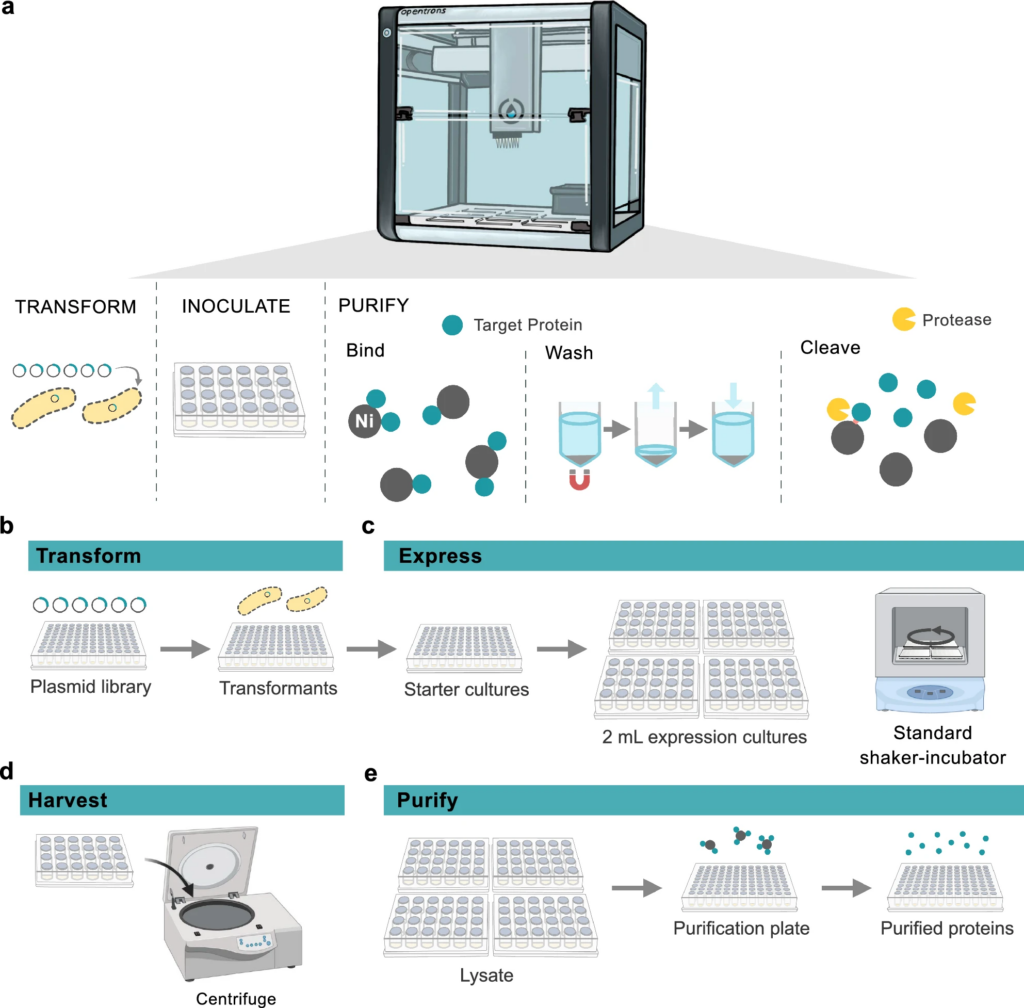
Automated Lab
Automation for high-throughput, fast and affordable results
Automated Sample Preparation Workflow for Proteomic Assays

Our automated sample preparation workflow provides robust, reproducible proteomics samples for high-throughput applications. This “cells-to-peptides” automated workflow for Gram-negative bacteria and fungi consists of cell lysis, protein precipitation, resuspension, quantification, normalization, and tryptic digestion.
Use case: This workflow was shown to successfully process four 96-well plates (384 samples) in parallel in under 6 hours for subsequent analysis in liquid-chromatography-mass spectrometry systems. This workflow alleviates manual labor and the risk of repetitive stress injuries from researchers preparing thousands of proteomics samples. Learn more about this workflow.
Automated Robotic Pipeline for Enzyme Expression/Purification/Assay

Our robot-assisted pipeline provides a fast and affordable platform for high-throughput protein purification. This pipeline can purify 96 proteins at once with minimal waste and can be scaled to process hundreds of proteins per week.
This pipeline was used to express and purify a set of PET-depolymerizing enzymes. The pipeline was found to be highly reproducible, and it achieved sufficient yields and purity required for activity assays and biophysical characterization.